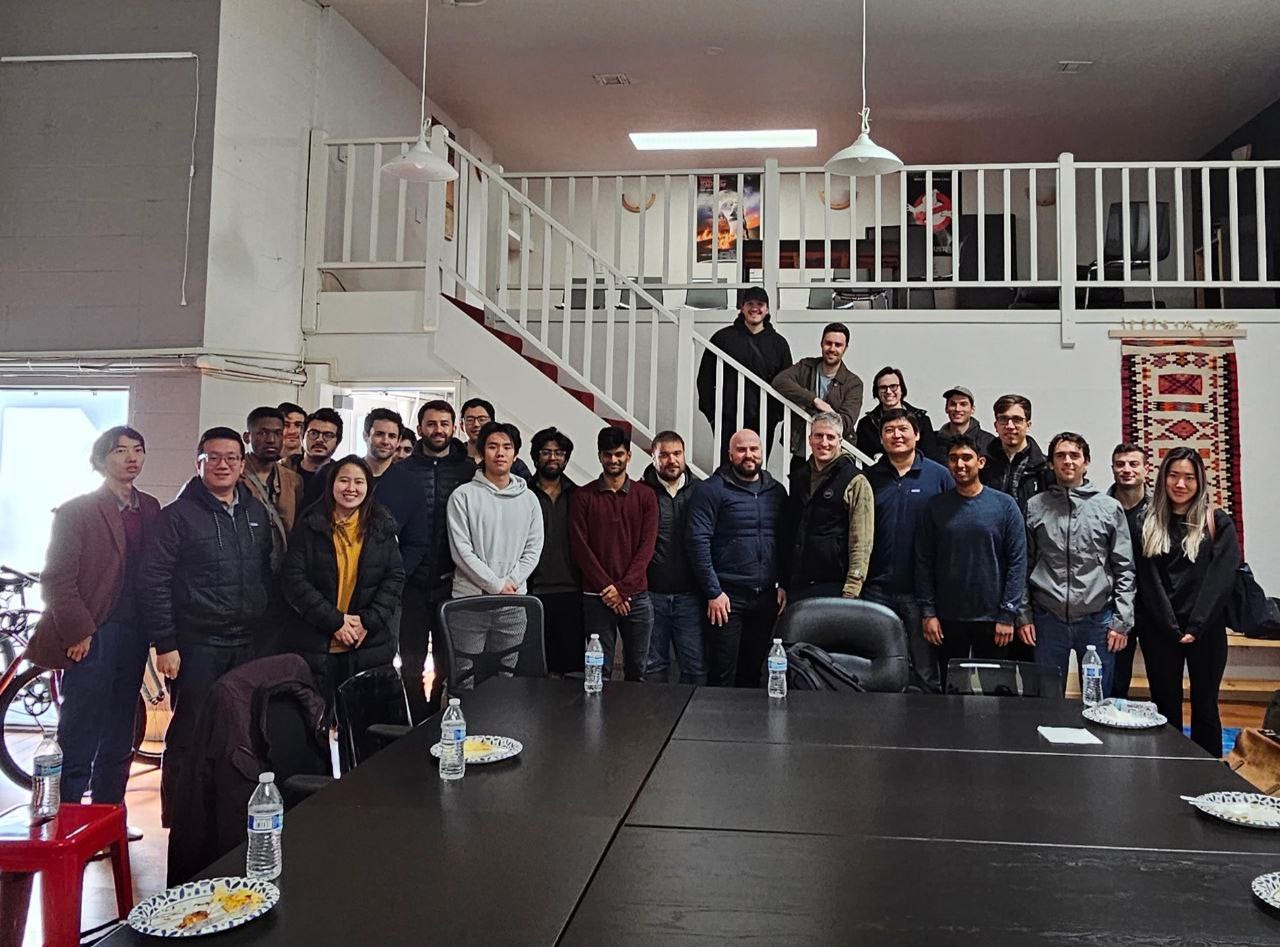Jean-Denis Greze, CTO of Plaid
Open banking miracle
Last week we had a chance to have SV Icons breakfast with Jean-Denis, CTO of Plaid.
He has a background in computer science with a failed attempt at starting a business before attending law school. Although he doesn't find his law school experience particularly helpful, the legal perspective and people management skills he picked up have proven useful throughout his career, particularly in his nuanced understanding of legal frameworks across countries. Jean-Denis worked briefly as an associate before returning to tech and worked at a European travel startup before joining Applied Academics as an engineer in financial services. He later joined Dropbox and rose to become Director of Engineering before meeting the Plaid founders and joining as Head of Engineering. He enjoys the challenge of simplifying the complex process of the Plaid Platform.
Here are some takeaways from our dinner.
What is your outlook on fintech APIs / open banking?
In the US, there is currently no regulation regarding open banking, with just one line in the law stipulating that data belongs to the end-user, who has to grant access. Europe, on the other hand, has open banking laws that make financial institutions custodians of data in countries such as Germany and the Nordic region. India and Brazil, meanwhile, are primarily focused on money movements.
According to Jean-Denis, there are two potential versions of US regulation for open finance. The first version would complement Plaid's work and concentrate on APIs, while the second would be more akin to the European style of law and give control to banks. However, he believes that the US is more likely to adopt the first version because regulators tend to concentrate on framework-based laws.
Following his legal education, the speaker found it much easier to develop Plaid since it currently necessitates contracts with banks.
What is most important for Plaid?
As per Jean-Denis's opinion, for Plaid, the most important factor is the layering of intelligence on top of data, which is currently not very powerful. The access is expected to become easier. He believes that the US money movement will undergo a transformation, and identity verification will become critical in this regard.
What does he think are unsolved problems in FinTech?
In discussing unsolved problems in FinTech, Jean-Denis mentioned the need for better business account aggregation and the difficulty in creating a successful business solely focused on money movement. He emphasizes the importance of considering the potential outcomes of instant money movement, as well as the need to focus on specific customers rather than products. Additionally, he cautions against copying solutions from other countries without considering the unique local market conditions.
What is Plaid focused on?
Plaid is currently focused on improving the user experience and reducing friction when connecting to their platform. They have acquired an identity company and many of their customers are using it.
How do they collect user data and manage that for fraud detection?
Plaid uses transaction history and device fingerprinting to detect fraud, but they also require the customer to be vigilant. They distinguish between different types of fraud, including synthetic and less sophisticated fraud. Plaid aims to minimize fraud, but acknowledges that there may always be some level of it.
Head of Engineering vs. CTO role?
He states that the Head of Engineering is responsible for culture, process, and minimizing culture debt, whereas the CTO is responsible for selecting the right technology and being creative in problem-solving. The ideal CTO has experience as a senior IC and has done architecture work. In startups, the CTO is often the most technical founder, and when a company has around 50 engineers, an experienced CTO or senior technical director is needed. When a company has around 25 engineers, a good Head of Engineering is needed to create a strong technical culture.
How do you integrate with traditional banks/players?
Integrating with traditional banks and players involves a lot of rejections, but eventually, relationships can be normalized. For example, some banks may require Plaid to make changes to its service to better align with the bank's priorities.
3 visionary projects he is working on?
Network effects for returning users
Investments in lending
Future of payments.
Organizer: Yegor Blanch
Host: Will Agramonte
Contributor: Sasankh Munukutla

